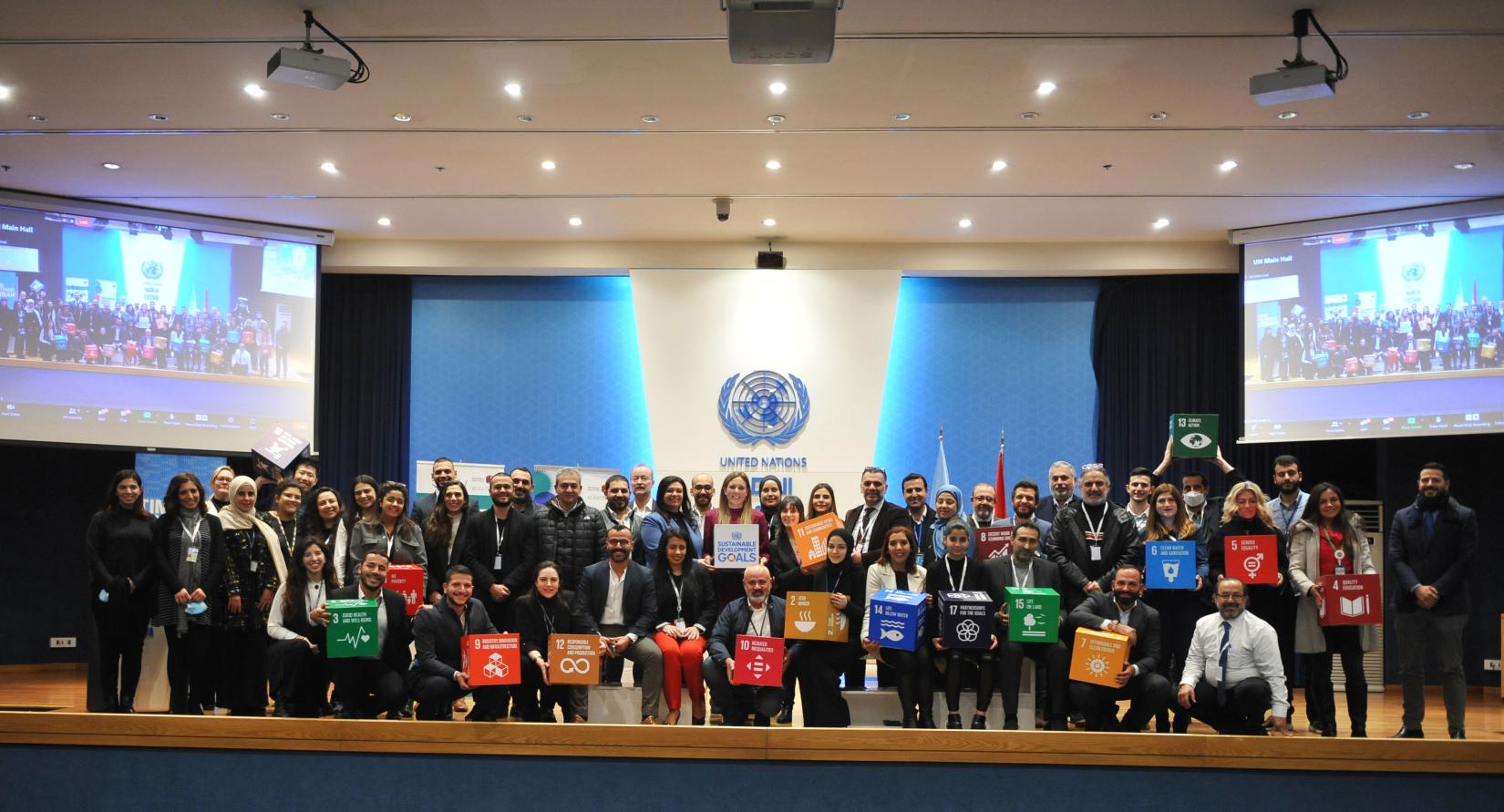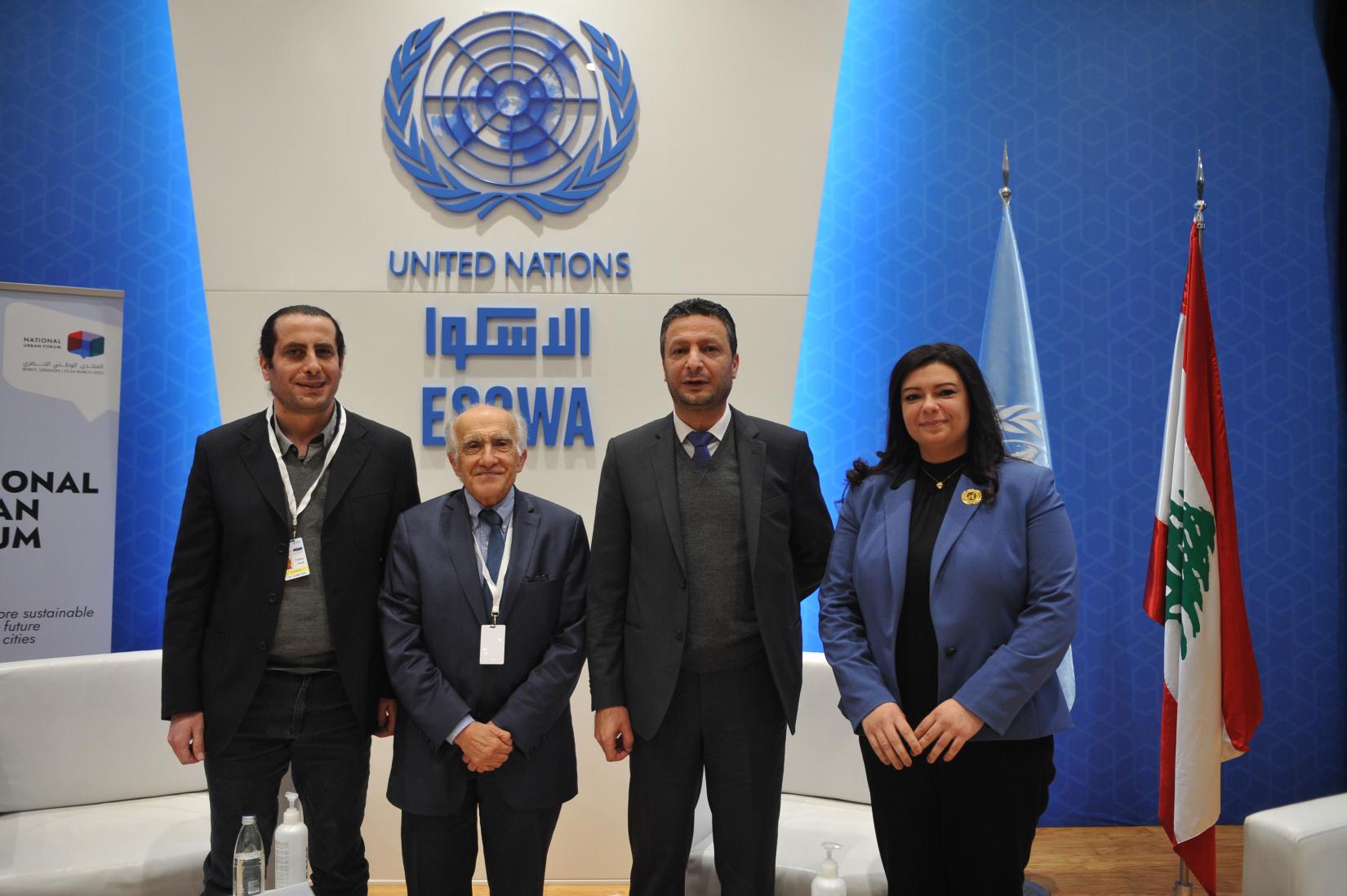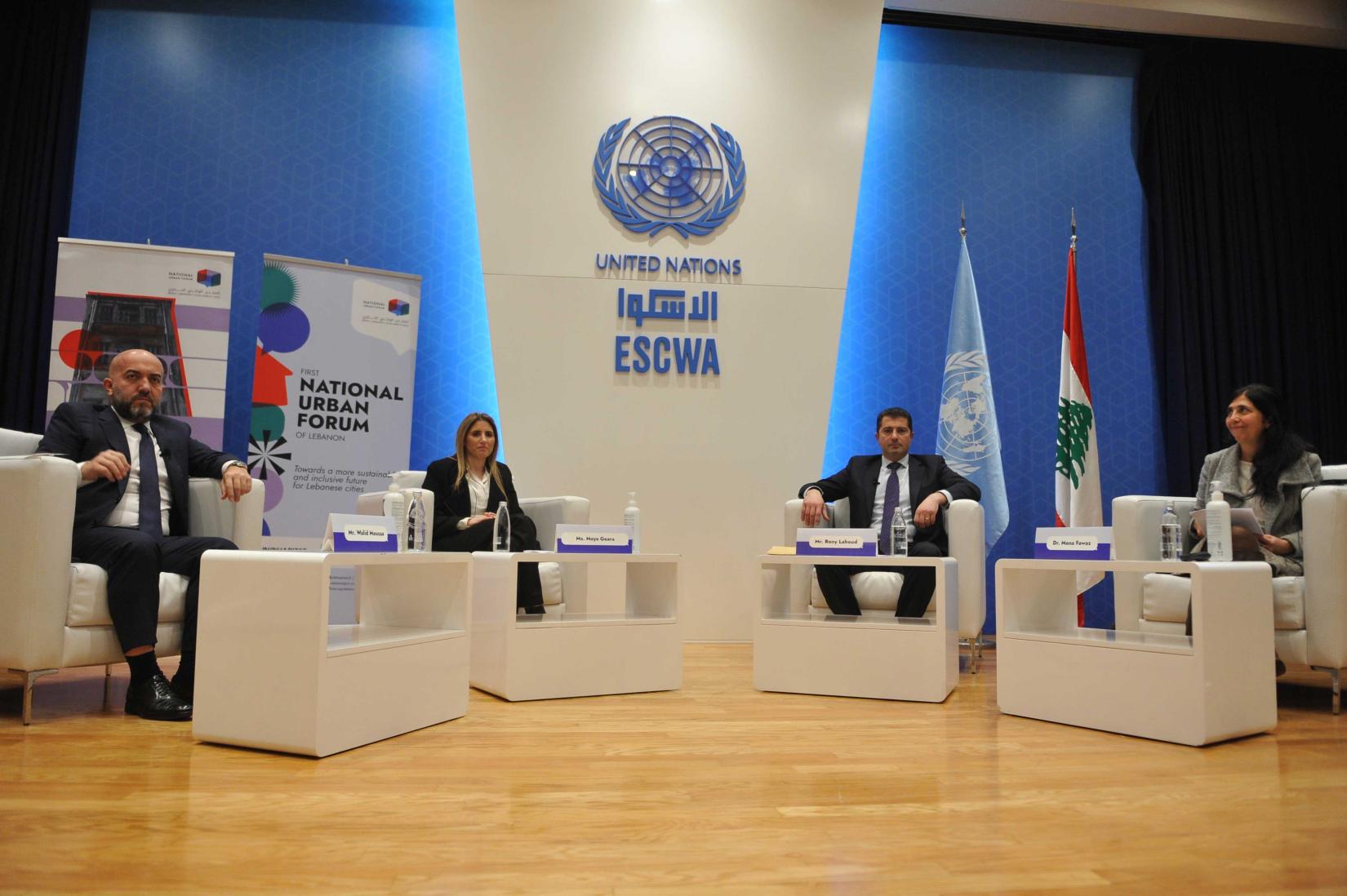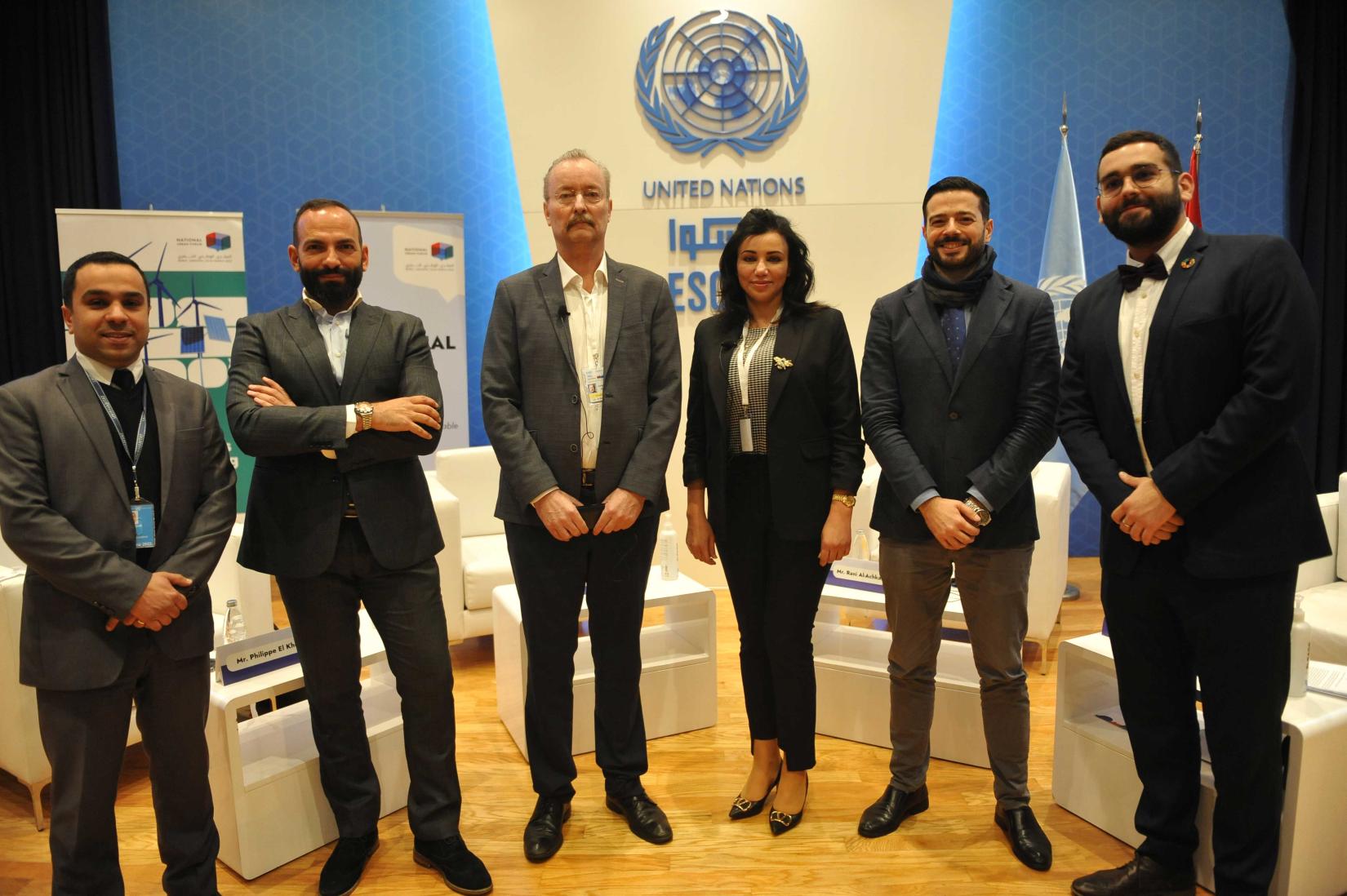First National Urban Forum of Lebanon wraps up with tangible recommendations on Lebanese cities, transport, housing and energy
01 April 2022
- Beirut, 31 March 2022. After two days of urban deliberations, the first National Urban Forum of Lebanon, organized by UN-Habitat in partnership with ESCWA, concluded, confirming that the future socio-economic recovery and sustainable development of the country must place Lebanese cities at the heart of these efforts.

The Forum also concluded with targeted recommendations within the transport, housing and energy sectors – as key entry points to place good urbanization as an opportunity for the future prosperity of the country.
A ground-breaking report on the state of urbanization in Lebanon was launched – the UN-Habitat-ESCWA State of the Lebanese Cities Report – which analyses ten cities across 19 themes, identifying entry points for moving towards a more sustainable urban realm. It shows that urban growth in recent decades has for some cities been explosive – and mainly unplanned. The ten cities together grew in this way by a total area equivalent to four times the size of Tripoli over the last three decades.
Through technical sessions with key experts and stakeholders’ representatives, the Forum launched three reports on housing and transport, as part of UN-Habitat’s National Urban Policy (NUP) programme. The reports offer critical policy recommendations for reforming the transport and housing sectors and responding to immediate needs and long-term goals.
The technical session on transport notably concluded on the opportunities that can emerge from the current crisis to enable a faster shift to alternative transport means, with policy reforms at the national level being inevitable to ensure equitable mobility for all residents.

The technical session on housing concluded on the importance of policy reforms for the recovery of the housing market and for increasing the supply of affordable housing, yet a bottom-up approach through pilot projects can spearhead best practices and pave the way for reforms to follow.

The technical session on energy inferred that appropriate investment in decentralized sustainable technologies – at both city and household levels – as well as awareness-raising on the set and required legal frameworks is crucial to trigger immediate and long-term energy needs. It also demonstrated that the current multi-stakeholder (namely public, private and academic institutions) approach, merits efforts to streamline conversations towards sustainable renewable energy solutions for Lebanon.

The UN-Habitat published reports are:
This guide proposes a set of policy orientations, recommendations and priorities to transition the transport sector in Lebanon to a sustainable future by helping to improve the state of mobility and the provision of transport services across the country. It is structured under the commonly adopted Enable-Avoid-Shift-Improve policy formulation framework for sustainable transport and mobility.
After providing an analysis of Lebanon’s housing sector, the guide identifies three major housing policy priorities: 1) Tighten the regulation and organization of land and real estate markets; 2) Diversify the channels of housing finance and delivery; and 3) Regenerate the existing formal and informal housing stock. It also provides an action plan that converts them to actionable programmes, instruments and interventions. It proposes 21 recommendations with short-term initiatives while also laying the groundwork for longer-term policy goals.
The objective of this synthesis report is to provide insights into Lebanon’s NUP programme by exploring the interlinkages of the two sectors identified as a priority (housing and transport), based on a general analysis of their nexus in urban planning and development. The report also briefly discusses the additional considerations brought on by the COVID-19 pandemic on these two sectors in Lebanon, as one example of a crisis that has policy implications.
The Forum also featured an Urban Fair, where exhibitors showcased best practices and future interventions mainly related to housing, transport and renewable energy. The Fair promoted these practices and solutions to exchange experiences, share knowledge, and demonstrate opportunities.
Exhibitors included:
- Riders' Rights
- Train/Train Lebanon
- Lebanese Center for Energy Conservation (LCEC)
- Public Works Studio (Housing Monitor)
- Beirut Urban Lab
- United Cities
- Lebanese Green Building Council (LGBC)
- Beirut Heritage Initiative
As a key outcome of the event, a Declaration was read-out, capturing a series of action-oriented commitments and suggestions made during the Forum. These commitments are to Lebanon, its citizens, and its residents, concretizing the centrality of good urbanization and planning, for the future well-being of all those living in Lebanon.
-ENDS-
About the United Nations Human Settlements Programme (UN-Habitat)
UN-Habitat works in over 90 countries supporting people in cities and human settlements for a better urban future. Working with governments and local partners, its high impact projects combine world-class expertise and local knowledge to deliver timely and targeted solutions. The 2030 Agenda for Sustainable Development includes a dedicated Goal on cities, SDG 11 – to make cities inclusive, safe, resilient and sustainable.
About ESCWA
One of five United Nations regional commissions, ESCWA supports inclusive and sustainable economic and social development in Arab States, and works on enhancing regional integration.
For media enquiries:
UN-Habitat Lebanon
Ms. Layal Abou Antoun
M: +961 81 512629 E: layal.abouantoun@un.org
ESCWA:
- Ms. Maryam Sleiman, Public Information Assistant, +961-81-769888; sleiman2@un.org
- Ms. Rania Harb, Public Information Assistant, +961-70-008879; harb1@un.org




